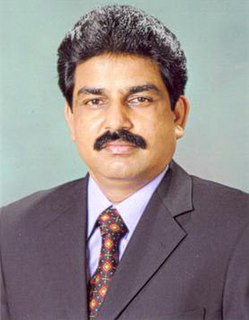A Quote by Richard Engel
What is the Obama Doctrine? It seems to be one of disengagement, to try to ignore the hot, religious, dry, poor countries from Algeria to Pakistan.
Related Quotes
In 2007 and 2008, it was impossible to get American and British policy makers, or Pakistani politicians, to acknowledge that the Taliban leadership was in Pakistan. This is the great virtue of the early statements of the Obama administration, when Obama himself, Richard Holbrooke and others, said that the threat to both countries comes principally from western Pakistan, in Balujistan and Waziristan. So there has been some progress, but probably the hardest part is yet to come.
I think religious freedom is part of the U.S.'s policy and Congress mandated the creation of the U.S. Commission on International Religious Freedom. So it is important that the U.S. focus in dialogue, development projects, cooperation with Pakistan and other countries to give more importance to religious freedom issues.
The second part of that war was that Muslims came from all over the country to Pakistan, and they met each other. For the first time those men had an awareness of the Islamic world as a whole, not of just Egypt or Algeria or Indonesia, but of what Muslims call the Uma, the Islamic community. And that's an extraordinarily important thing. And that emanated in Pakistan.
A considerable proportion of the developed world's prosperity rests on paying the lowest possible prices for the poor countries' primary products and on exporting high-cost capital and finished goods to those countries. Continuation of this kind of prosperity requires continuation of the relative gap between developed and underdeveloped countries - it means keeping poor people poor. Increasingly, the impoverished masses are understanding that the prosperity of the developed countries and of the privileged minorities in their own countries is founded on their poverty.
Pakistan always seems to have a lot of political complexities and political challenges. But Pakistan is important for a number of reasons. Primarily, it is a nuclear power. And if, in fact, al Qaeda and Taliban, which are in Pakistan and causing a lot of tragedies and deaths in Pakistan - if they would ever somehow have real influence and control of that government, then we [world] really have a problem.
My father's from Pakistan and he has been a secularist all his life. In the Pakistani context, there's no messing with religion. There's been a battle for the soul of Pakistan since 1947 and I have grown up without any illusions about the dangers of religious power in the context of a country like Pakistan.
Pakistan is alarmed by the rising Indian influence in Afghanistan, and fears that an Afghanistan cleansed of the Taliban would be an Indian client state, thus sandwiching Pakistan between two hostile countries. The paranoia of Pakistan about India's supposed dark machinations should never be underestimated.































